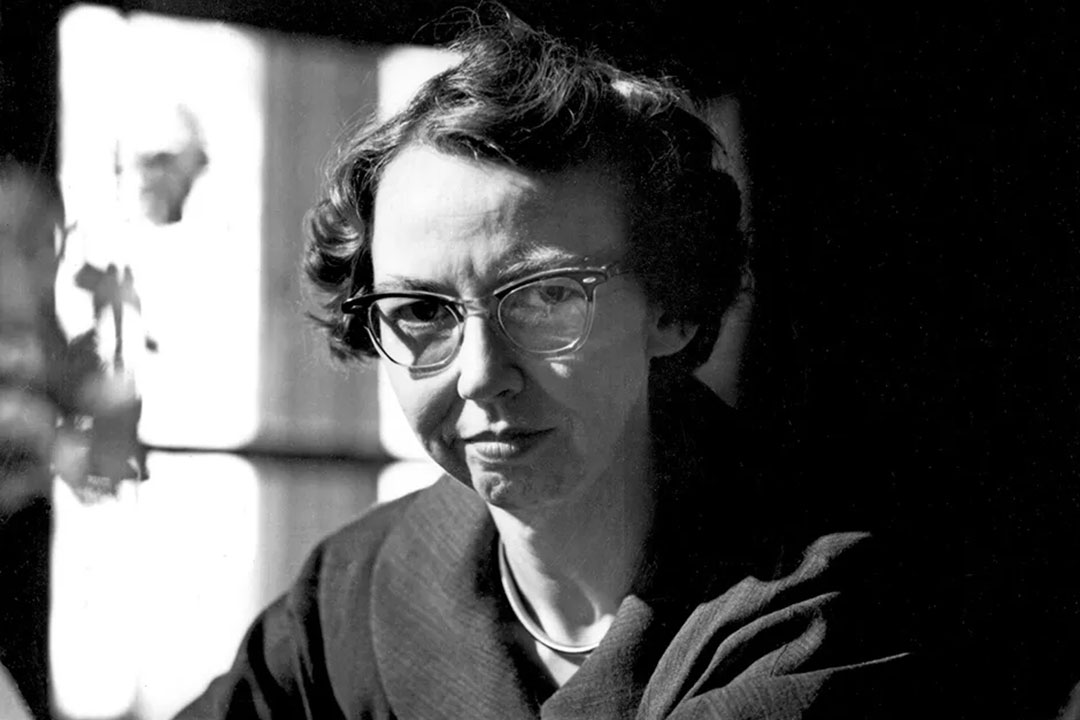
Being Right
By Jemy Gatdula

It’s likely she would have disapproved of the title. “Let me be your typewriter,” she prays to God in the movie Wildcat and while humbly appropriate that may be, the implications of that wish are nothing short of glorious.
Next week (Aug. 3) marks the 60th death anniversary of Flannery O’Connor, widely considered as one of, if not the, greatest of America’s fiction writers ever. A devout Catholic, her small but incredibly profound body of work — macabre, violent, scandalous even — strikingly encapsulates every person’s struggle over what she deemed the “stinking mad shadow of Jesus.”
If the last phrase struck you as odd, you’re not alone. As O’Connor herself was wont to say: “You shall know the truth and the truth shall make you odd.”
“You think it’s this bitter old alcoholic who’s writing these really funny dark stories and then you find out she’s a woman and that she’s devoutly religious.”
That was Conan O’Brien speaking of Flannery O’Connor.
For some reason, which I have yet to fathom, Flannery O’Connor is frequently in my mind. Almost an obsession. I read her stories, I download her novels, I listen to podcasts about her. More than her work, something about her as a writer and as Catholic is calling out to me.
Perhaps what’s so compelling about her is the fact that her work (the complete opposite of saccharine, dark, twisted, offensive) is actually formed by her devout Catholicism.
Not for her is the bland and artificial “charity” of effete Catholics: “I don’t deserve any credit for turning the other cheek as my tongue is always in it.”
That orneriness and quirkiness is on full display in the new movie Wildcat, directed by Ethan Hawke and starring his daughter Maya (as Flannery O’Connor). In This Catholic Family’s review of the film (“Highly Recommended,” May 2024), it noted appreciatively that Wildcat — “stands out for its portrayal of a brilliant and very human Catholic person who deeply loved her faith, who found comfort in that faith during her life’s greatest trial, and for whom faith played an inextricable part in the unconventional stories she chose to tell. Wildcat begs to be savored while watching, and is primed to provoke discussion for some time after the final credits have rolled.”
Which leads me to my favorite Flannery O’Connor story, a story that she didn’t write but lived. As O’Connor herself recounts (in a letter to her friend Elizabeth Hester, dated Dec. 16, 1955):
“I was once, five or six years ago, taken by some friends to have dinner with Mary McCarthy and her husband, Mr. Broadwater… She departed the Church at the age of 15 and is a Big Intellectual. We went at eight and at one, I hadn’t opened my mouth once, there being nothing for me in such company to say. The people who took me were Robert Lowell and his now wife, Elizabeth Hardwick. Having me there was like having a dog present who had been trained to say a few words but overcome with inadequacy had forgotten them. Well, toward morning the conversation turned on the Eucharist, which I, being the Catholic, was obviously supposed to defend. Mrs. Broadwater said when she was a child and received the Host, she thought of it as the Holy Ghost, He being the ‘most portable’ person of the Trinity; now she thought of it as a symbol and implied that it was a pretty good one. I then said, in a very shaky voice, ‘Well, if it’s a symbol, to hell with it.’ That was all the defense I was capable of but I realize now that this is all I will ever be able to say about it, outside of a story, except that it is the center of existence for me; all the rest is expendable.”
That’s as great a defense of the Eucharist that the Catholic Bishops’ Conference of the Philippines in its present state wouldn’t be able to even approximate.
Of the present condition of the Vatican and the Catholic Church, O’Connor gives some consolation: “It seems to be a fact that you have to suffer as much from the Church as for it.” She’s right. As St. Peter would say: “Where [else] should we go?”
For those still getting to know her, the Complete Stories is highly recommended. There are the novels, of course, for which Wise Blood takes prominence. For me, personally, her A Prayer Journal is dear.
In it, one recognizes a woman with deeply held ambitions and yet mindful to conform such ambitions within her faith. As O’Connor writes: “They think faith is a big electric blanket, when of course it is the cross.” Written sporadically in 1946, her Prayer Journal offers a glimpse of a young woman unsure and uncertain, whose greatness is still to come. Reading it, one feels as if praying with Flannery O’Connor herself, through the Journal’s four major parts of adoration, contrition, thanksgiving, and supplication.
Finally, Flannery O’Connor absolutely captures the feeling I have about writing, advocacy, and for standing up and speaking out for what I believe in but surrounded by people so scared of offending others: “To the hard of hearing you shout and for the almost blind you draw large and startling figures.”
Exactly! And in these times of sexual orientation and gender identity, divorce, same sex marriage, and other woke causes, including horrendous works of “art” such as the Barbie movie, she would likely say: “The truth does not change according to our ability to stomach it.”
She even manages to make an attack against mediocrity which, again in today’s Philippines where almost every student graduates “cum laude,” is most apt: “Everywhere I go I’m asked if I think the university stifles writers. My opinion is that they don’t stifle enough of them. There’s many a best-seller that could have been prevented by a good teacher.”
Flannery O’Connor is the writer and model we most need today. After years of being besotted so much with Patricia Highsmith, to be with Flannery O’Connor is like for me coming home. Of being finally with the right woman. And I truly hope more of our youth get to know her.
The views expressed here are his own and not necessarily those of the institutions to which he belongs.
Jemy Gatdula is the dean of the Institute of Law of the University of Asia and the Pacific and is a Philippine Judicial Academy lecturer for constitutional philosophy and jurisprudence. He read international law at the University of Cambridge.
https://www.facebook.com/jigatdula/
Twitter @jemygatdula